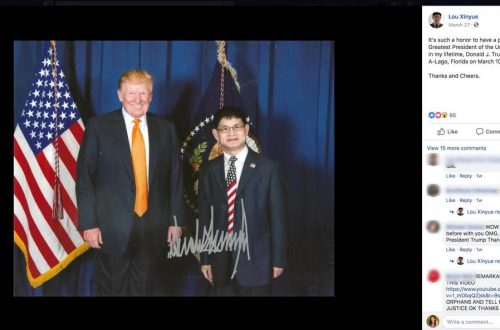In China, of course, tweeting messages that certain people don’t like can get you in a lot more trouble than it can in the UK.
In April 2011, retired forestry official Fang Hong posted a scatological tweet, mocking a powerful Chinese politician, Bo Xilai, the Chongqing party secretary.
Fang had been critical of Bo in the past. But last year, he was fired up by what he considered the injustice of a court case taken against lawyer Li Zhuang, who’d been defending an alleged gangster during Bo’s clampdown against the mafia. In the heat of his outrage, Fang posted his tweet, which also mocked the powerful police chief, Wang Lijun.
After that, Fang went out to buy vegetables and didn’t think about the tweet. He estimates only around 90 people saw it that day. But despite its limited influence, that night he was summoned to the Fuling public security bureau and asked to delete the tweet, which he did.
The next day, more than 20 police officers came to his house to arrest him.
…..
Without a trial, Fang was sent to a re-education-through-labor center for a year.
And yet another reminder for those of us in the West who serenely buy Chinese-made products:
When Fang was inside the camp, he worked for as many as 14 hours a day. Initially he made Christmas tree lights for export to Germany.
“A skilled worker at the company welds 4,300 lights a day, but we welded 6,500 lights a day each,” he says. “If you didn’t finish, you weren’t allowed to eat meat, buy cigarettes or sleep at night, and your sentence might be extended. We earned one U.S. dollar, 25 cents a month.”
Those who did not make their quota were sometimes even beaten, he says, with the pressure rising in the summer when orders had to be filled for export in time for Christmas. Later he made wiring for laptop computers.
At Socialist Unity (or should I say “Corporatist Unity”?), Andy Newman wrote:
The difficult task for socialists today is to envisage how to make transformative change in a globalised world where the power of multi-national corporations is outwith the reach of state sovereignty.
The tasks before us are how we acheive sustainable economic growth, which requires a model for finding a win-win relationship between a left government exercising economic and political sovereignty on the one hand, and private multi-national corportations on the other. China has shown this can be done.
Well, yes, I suppose you could say that.
Unfortunately the folks at SU have decided they don’t want us linking to them anymore. If you click on the Socialist Unity link under “Stoppers” in the lefthand column, you’ll see what I mean.
So you’ll have to copy and paste if you want to see the original:
http://www.socialistunity.com/lessons-bradford-west-labour-respect-debate/#comment-606878


